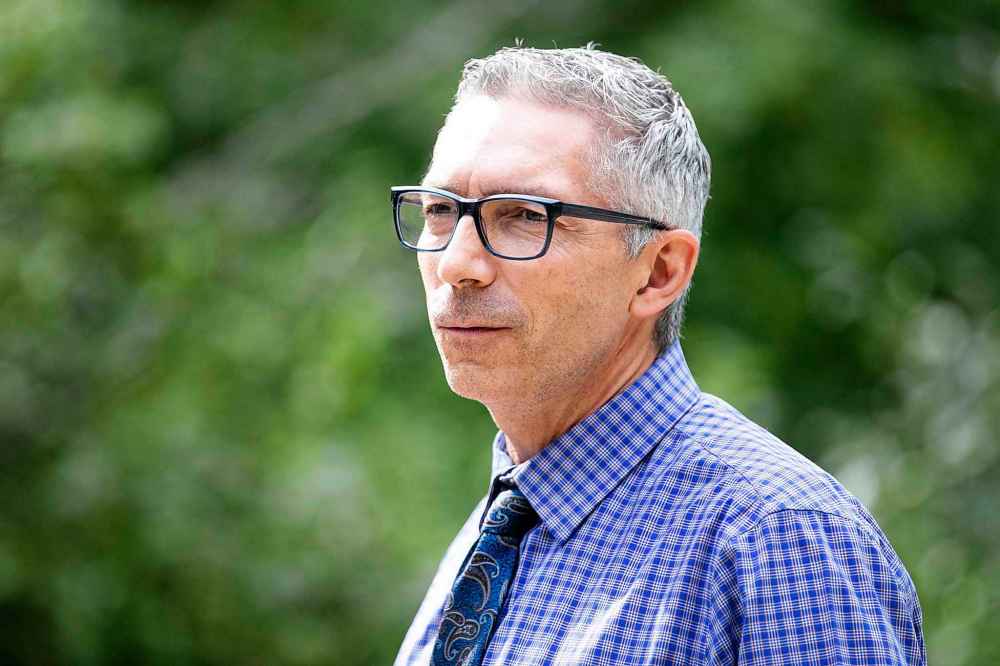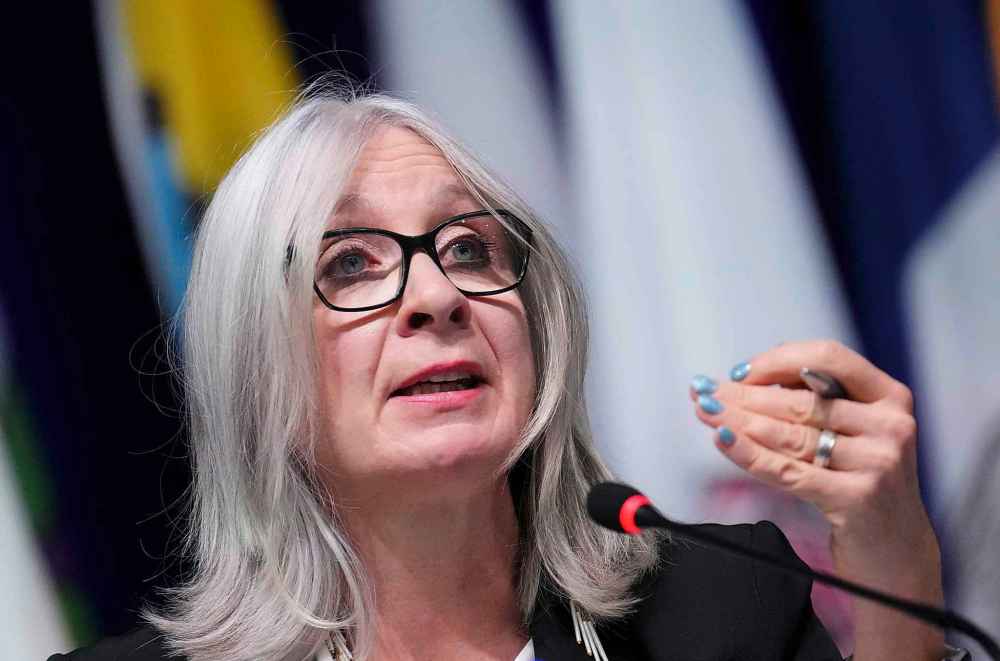School boards prepare for cuts to Jordan’s Principle funding
Advertisement
Read this article for free:
or
Already have an account? Log in here »
To continue reading, please subscribe:
Monthly Digital Subscription
$1 per week for 24 weeks*
- Enjoy unlimited reading on winnipegfreepress.com
- Read the E-Edition, our digital replica newspaper
- Access News Break, our award-winning app
- Play interactive puzzles
*Billed as $4.00 plus GST every four weeks. After 24 weeks, price increases to the regular rate of $19.00 plus GST every four weeks. Offer available to new and qualified returning subscribers only. Cancel any time.
Monthly Digital Subscription
$4.75/week*
- Enjoy unlimited reading on winnipegfreepress.com
- Read the E-Edition, our digital replica newspaper
- Access News Break, our award-winning app
- Play interactive puzzles
*Billed as $19 plus GST every four weeks. Cancel any time.
To continue reading, please subscribe:
Add Free Press access to your Brandon Sun subscription for only an additional
$1 for the first 4 weeks*
*Your next subscription payment will increase by $1.00 and you will be charged $16.99 plus GST for four weeks. After four weeks, your payment will increase to $23.99 plus GST every four weeks.
Read unlimited articles for free today:
or
Already have an account? Log in here »
Hey there, time traveller!
This article was published 10/03/2025 (211 days ago), so information in it may no longer be current.
Manitoba school boards are bracing for cuts to their Jordan’s Principle funding as trustees assess staffing needs and budget pressures for next year.
The Hanover School Division laid off 93 educational assistants in the fall, citing the “unexpected loss” of federal dollars to support First Nations students.
The announcement out of Steinbach and recent changes to eligibility under the child-first principle have sent a chill across the kindergarten-to-Grade 12 sector.

Since its inception in 2016, the fund has sought to ensure First Nations kids do not face gaps, delays or denials in accessing government services available to their peers.
It was named in memory of Jordan River Anderson, a five-year-old boy from Norway House Cree Nation. Jordan, who lived with multiple disabilities, died in a Winnipeg hospital as the Manitoba and Canadian governments fought over who should pay his home-care bills.
Indigenous Services Canada announced new criteria and documentation requirements last month to expedite approvals for funding and keep “long-term sustainability in mind.”
The changes include no longer approving school-related requests, unless they can be linked to a child’s specific health, social or educational needs.
“There is the potential that we could be losing our Jordan’s Principle funding for next school year and for future school years,” Kelly McDonald, chief financial officer for the Lord Selkirk School Division, told a board meeting last month.
McDonald noted that her employer, which encompasses 15 schools in St. Andrews, Lockport and surrounding communities, hired dozens of EAs with the federal funding.
Over the last two school years, an in-house co-ordinator — whose salary is paid through a partnership with the Southern Chiefs’ Organization — has helped families secure EAs and other resources for students in need.
Superintendent Jerret Long said the division has made contingency plans in case the wages for 45 full-time equivalent employees are not renewed.
The uncertainty has also led Manitoba’s largest school division to lower its federal revenue projections for 2025-2026 by about $2.5 million.
Matt Henderson, superintendent of the Winnipeg School Division, indicated his office is being “very, very conservative” so he and his colleagues won’t have to scramble if the funding does not continue.
Manitoba schools were allotted more than $7 million for the current school year. That figure has been on the rise, year-over-year.
“There were no clear guidelines that we were given. It was a free-for-all. That was the problem,” one former school division-based co-ordinator told the Free Press.

The co-ordinator, who recently left his position over personal frustrations and requested his name be withheld due to the sensitivity of the subject, said his caseload rose by roughly 1,600 students between his first and second year submitting funding requests.
Caregivers, some of whom were not sending their children to school regularly, took advantage of the openness of the program and sought money for everything from sports equipment to private music lessons, he said.
The Winnipeg-based educator said he quit due to personal concerns that students with medical needs — the group that Jordan’s Principle was originally created to support — were being overlooked.
The original rollout of the child-first initiative targeted costs associated with respite care, mental-health services, medical equipment, rehabilitative therapies and special education.
While noting he welcomes stricter application criteria, the former co-ordinator said not paying for off-reserve EAs will harm the most vulnerable students.
The Canadian School Boards Association has requested a meeting with Indigenous Services Minister Patty Hajdu to seek clarification on new eligibility and raise member concerns.
Jordan’s Principle is an integral program “worthy of the attention of all levels of government,” including elected school boards, said Alan Campbell, a Stonewall trustee who oversees the national association.
“Jordan’s Principle is supposed to be used when necessary; it shouldn’t negate provincial or territorial responsibility,” Jennifer Kozelj, press secretary for Hajdu, said in an email.
“It’s not within the spirit of why Jordan’s Principle was created in the first place.”
Last year, there were nearly three million funding requests approved under the program. That’s a 367 per cent jump from 2021-22, during which there were just over a half-million requests.
maggie.macintosh@freepress.mb.ca

Maggie Macintosh
Education reporter
Maggie Macintosh reports on education for the Free Press. Originally from Hamilton, Ont., she first reported for the Free Press in 2017. Read more about Maggie.
Funding for the Free Press education reporter comes from the Government of Canada through the Local Journalism Initiative.
Every piece of reporting Maggie produces is reviewed by an editing team before it is posted online or published in print — part of the Free Press‘s tradition, since 1872, of producing reliable independent journalism. Read more about Free Press’s history and mandate, and learn how our newsroom operates.
Our newsroom depends on a growing audience of readers to power our journalism. If you are not a paid reader, please consider becoming a subscriber.
Our newsroom depends on its audience of readers to power our journalism. Thank you for your support.
History
Updated on Monday, March 10, 2025 9:49 AM CDT: Corrects time reference to last month






